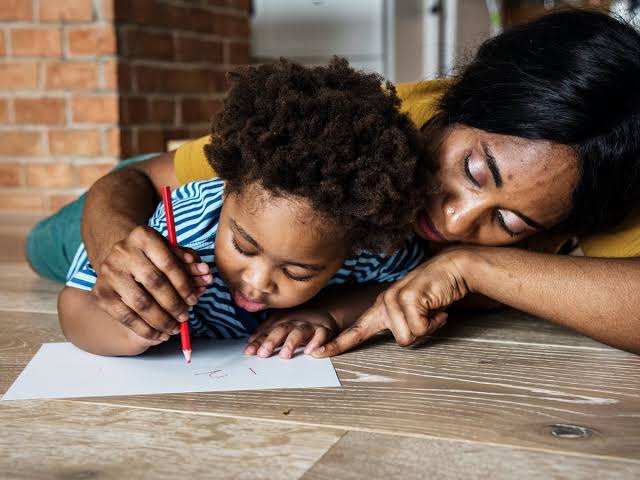Peace Itong
Parents often ask how they can help their children to love reading. It’s no wonder that they are interested in this essential skill because reading plays an important role in later school success.
Ritchie, S.J., & Bates, T.C. in their book, Enduring links from childhood mathematics and reading achievement to adult socioeconomic status. Psychological Science, discovered that parents are told early teaching is harmful, but it isn’t true. You simply can’t introduce literacy too early.
Parents are world influencers
The “dangers of early teaching” has been a topic of study for more than 100 years, and no one has ever found any convincing evidence of harm. Moreover, there are hundreds of studies showing the benefits of reading to your children when they are young.
You don’t need a Ph.D. to raise a happy, healthy, smart child.
Parents have been doing it for thousands of years. Mothers and fathers successfully teach their kids to eat with a spoon, use a potty, keep their fingers out of their noses, and say “please.” These things can be taught pleasantly, or they can be made into a painful chore. Being unpleasant (e.g. yelling, punishing, pressuring) doesn’t work, it can be frustrating for everyone.
The writers pointed out that reading is a language activity, and if you want to learn language, you’d better hear it, and eventually, speak it. Too many moms and dads feel a bit dopey talking to a baby or young child, but studies have shown that exposing your child to a variety of words helps in her development of literacy skills.
Going futher, if a parent or caregiver can’t read, there are alternatives, such as using audiobook. Those who can, reading a book or story to a child is a great, easy way to advance literacy skills.
Reading to kids exposes them to richer vocabulary
Research shows benefits for kids as young as 9-months-old, and it could be effective even earlier than that. Reading to kids exposes them to richer vocabulary than they usually hear from the adults who speak to them, and can have positive impacts on their language, intelligence, and later literacy achievement.
Another great way to introduce kids to literacy is to take their dictation. Have them recount an experience or make up a story. A typical first story may be something like, “I like fish. I like my sister. I like grandpa.” Write it as it is being told, and then read it aloud. Point at the words when you read them, or point at them when your child is trying to read the story. Over time, with lots of re-reading, don’t be surprised if your child starts to recognize words such as “I” or “like.”
Parents can also make reading a part of their daily life, and kids will learn to love it. Set aside some time when everyone turns off the TV and the web and does nothing but read. The point is to make reading a regular enjoyable part of your family routine.
When your child reads, get her to re-tell the story or information
When your child reads, get her to re-tell the story or information. If it’s a story, ask who it was about and what happened. If it’s an informational text, have your child explain what it was about and how it worked, or what its parts were. Reading involves not just sounding out words, but thinking about and remembering ideas and events. Improving reading comprehension skills early will prepare her for subsequent success in more difficult texts.
Literacy involves reading and writing. Having books and magazines available for your child is a good idea, but it’s also helpful to have pencils, crayons, markers, and paper. Encourage your child to write. One way to do this is to write notes or short letters to her. It won’t be long before she is trying to write back to you.
NOA ranks Ebonyi among leading states with FMG
When your child starts bringing books home from school, have her read to you. If it doesn’t sound good (mistakes, choppy reading), have her read it again. Or read it to her, and then have her try to read it herself. Studies show that this kind of repeated oral reading makes students better readers, even when it is done at home.
Young children don’t hear the sounds within words. Thus, they hear “dog,” but not the “duh”-“aw”- “guh.” To become readers, they have to learn to hear these sounds (or phonemes). Play language games with your child. For instance, say a word, perhaps her name, and then change it by one phoneme: Jen-Pen, Jen-Hen, Jen-Men. Or, just break a word apart: chair… ch-ch-ch-air.

















